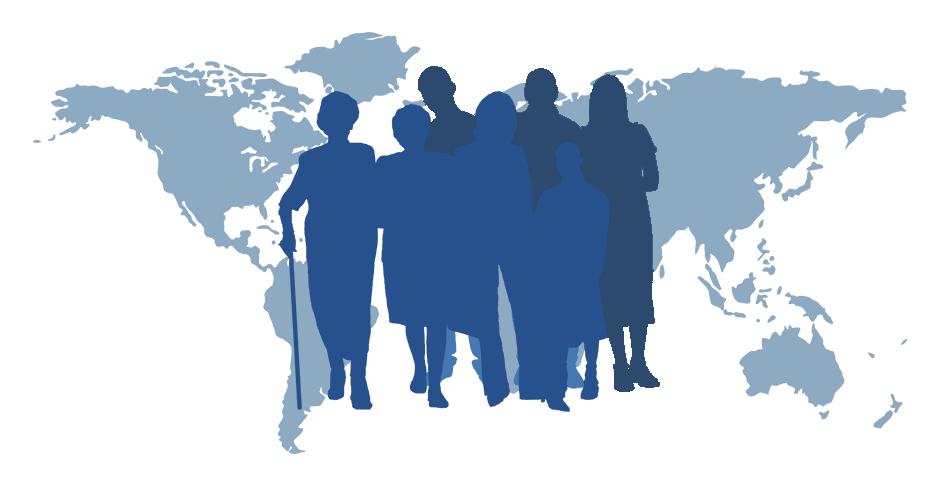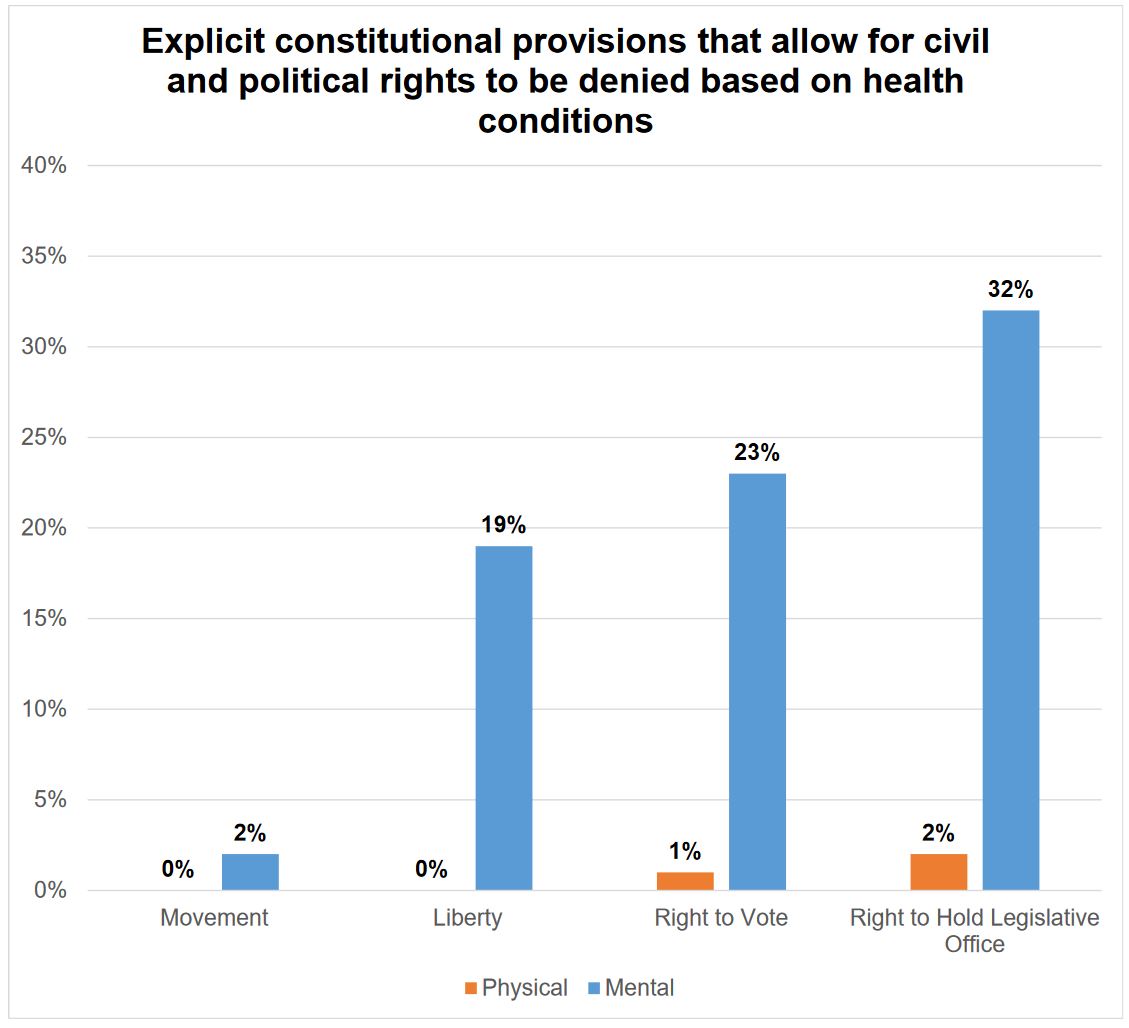
WORLD Policy Analysis Center
FACT SHEET: JANUARY 2020
- According to the World Health Organization, an estimated 1 billion people—or around 1 in 7—are living with a disability
- People with disabilities continue to face significant barriers to education, employment, and adequate healthcare, with consequences for income and full participation in society:
- In low- and middle-income countries, school enrollment rates for children with disabilities are commonly 30-50 percentage points lower than for their counterparts
- A study of 27 OECD countries found that the employment rate of working-age people with disabilities was just 44%, compared to 75% for people without disabilities in the same age group
- Addressing this exclusion requires not only prohibiting discrimination, but also affirmatively guaranteeing inclusive education and reasonable accommodations at work
- In 2006, the UN Convention on the Rights of Persons with Disabilities—one of the fastest ratified human rights treaties in history—laid out a comprehensive framework for equality and inclusion
- Constitutions can play a role in implementing its commitments and these broader principles:
- In Mexico, the Supreme Court ordered damages after a private employer posted a job vacancy that specified people with disabilities could not apply, citing equal rights on the basis of disability in the constitution
- In Brazil, the Supreme Court held that a private school was not exempt from the constitution’s commitment to inclusive education
- In Canada and Iceland, top courts ruled that the constitution requires hospitals to provide interpreters for the deaf
- Around the world, 27% of constitutions explicitly prohibit discrimination on the basis of disability. Some also address equal rights in key areas:
- 32% of constitutions include protections of educational rights for children with disabilities; however, just 4% address integrated education, and this language generally falls short of full inclusion
- 27% of constitutions protect the health rights of persons with disabilities
- 26% of constitutions protect the right to work for people with disabilities or prohibit employment discrimination on the basis of disability, though just two countries address reasonable accommodations at work
- Constitutional protections of equal rights on the basis of disability have become more prevalent in recent decades:
- Just 12% of current constitutions adopted before 1970 prohibit discrimination against people with disabilities, compared to 71% of those adopted in 2010–2017
- At the same time, a significant number of constitutions contain restrictions on rights for people with disabilities, while others use outdated language that fails to acknowledge the role of social, legal, and environmental factors in shaping whether a given condition is disabling
- Restrictions are especially common on political rights: 23% limit the right to vote and 32% limit the right to hold legislative office for mental health conditions
- Around 1 in 4 people globally have a history of a mental or emotional health problem, underscoring the potentially broad application of these restrictions
- Further, historic examples of disenfranchisement, such as literacy tests, reveal that restrictions are often imposed as pretext for discrimination
- In addition, 19% of constitutions limit the right to liberty, while 4 constitutions limit freedom of movement for persons with mental health conditions. People with disabilities commonly face high rates of involuntary confinement, and these broad limitations open the door to abuse.

ABOUT ADVANCING EQUALITY
To learn more, please read or download the open-access book Advancing Equality: How Constitutional Rights Can Make a Difference Worldwide (Jody Heymann, Aleta Sprague, and Amy Raub; University of California Press, 2020).
Analyzing the constitutions of all 193 United Nations countries, Advancing Equality traces 50 years of change in constitution drafting and examines how stronger protections against discrimination, alongside core social and economic rights, can transform lives.
ABOUT WORLD
The WORLD Policy Analysis Center (WORLD) aims to improve the quantity and quality of globally comparative data on policies affecting health, development, well-being, and equity. With these data, WORLD informs policy debates; facilitates comparative studies of policy progress, feasibility, and effectiveness; and advances efforts to hold decision-makers accountable.